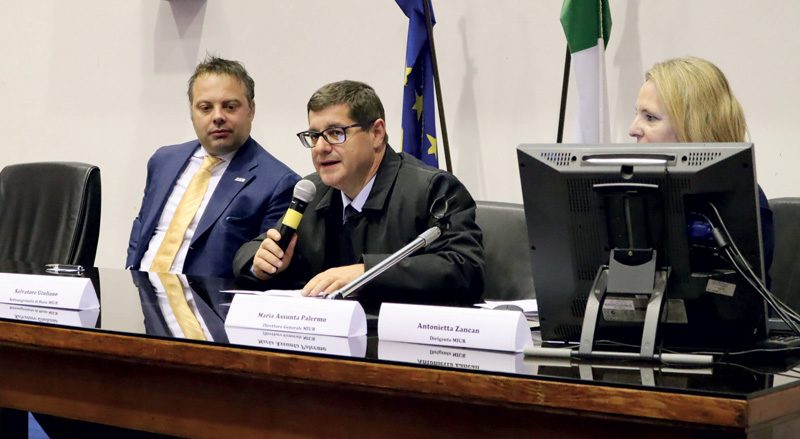Transforming, not Reforming School
Principal at the IISS Ettore Majorana in Brindisi since 2008, last year Salvatore Giuliano was appointed Undersecretary at MIUR. Alongside the conference held in Rome we had the opportunity to make him some questions about the cooperation with AIdAM for the development of mechatronic skills, the role of technical schools in Italy and about how work-related learning, a key bridge to build an effective relationship between school and business, is about to change.
by Fabrizio Dalle Nogare
Where does the need to invest time and resources in a project dealing with mechatronics and automation come from?
I believe that this sector may represent the future of our country. It actually requires the development of the so-called soft skills, which are increasingly important not only in the world of work, but rather in the society as a whole. For this reason, we are currently working on the introduction of new guidelines, addressed in particular to the issue of work-related learning and increasingly focused on the development of soft skills. Generally speaking, it is necessary to rely on successful experiences for the benefit of the country as a whole.
What are the main reasons why the MIUR started to create and share a cooperation path with AIdAM, which is a rather vertical trade association?
AIdAM is a cutting-edge and very careful standpoint. It is absolutely important, in my opinion, to listen to those actors that put a lot of efforts in trying to innovate our country. Moreover, the association has a clearly innovative strategy. In these very first months as a Government member I had the possibility to work together with AIdAM several times and now I think it is time to turn this exchange of views into action that may give concrete advantages to the whole country. A closer dialogue between schools and companies is positive to all of us.
What can politics do to support education?
There is no better investment than the one carried out in education. However, politics has too often looked at education as something to be reformed, sometimes aiming at reducing costs in quite a short time. Of course, I think that such an approach is not correct. In order to face the matter of education in the right way, long-term vision is essential. At the same time, it is quite unrealistic to claim short-term benefits.
Some people say that technical schools suffer from a lower consideration compared to other types of high schools. Do you agree with this statement?
I do agree also because I am the principal of a technical school. I think that such an idea is not easy to refute, however it is possible to do something by carrying out some smart and careful counselling activities. In fact, counselling is not always performed carefully with students who are about to begin high school. Therefore, when telling about the advantages of technical schools, often people are focused only on job opportunities. However, although school must prepare young people’s working life, I also think that one of their tasks is to turn students into informed citizens. Technical schools indeed provide specific skills for the world of work as well as a thorough education. Too often people underestimate the value of technical schools in terms of skills and knowledge to face people’s everyday life.
I also believe that, generally speaking, technical or scientific culture is sometimes seen as less important compared to humanistic studies. This is not always correct.
Do you believe that technical schools have changed in time? Why are they supposed to be different, today, compared to the past?
Technical studies have certainly changed a lot in the latest years. I believe that technical schools today are much closer to technological innovation.
Clearly, there is still a lot to do because our educational system is not uniform: several cutting-edge schools are joined by schools that have a lot of problems, not only because of their location in the national territory. Working on mentality and people cannot give results in the short term. We need patience and time.
Manufacturing entrepreneurs are generally quite happy with the effects of work-related learning programs. What is the Government doing as for this issue?
In the 2019 Budget Law we have set some minimum standards in terms of hours: 90 for high schools, 150 for technical schools and 210 hours for professional institutes. However, this is only a minimum threshold. In fact, those schools that, for manifold reasons, need to increase the number of hours addressed to work-related learning projects will have the possibility to do that relying on about 100 million euro allocated by the Government as additional funds.
Moreover, as mentioned above, our new idea of work-related learning focuses on the development of soft skills. To sum up, we aim at creating paths featured by quality more than by quantity.

